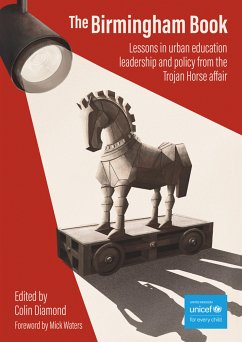The book offers fresh perspectives based on unique access to information from within the city, written by respected educationalists who have worked successfully in Birmingham for many years both during the Trojan Horse era and since. It explains what led to the publication of the letter, its profound consequences for education in Birmingham, and how it influenced events in the city since.
Crucially the book also opens up an informed discussion around the issues raised during Trojan Horse, such as delivering a well-rounded curriculum suitable for a diverse school community, developing working partnerships in the local area, and boosting the attainment and aspirations of children from disadvantaged backgrounds.
Colin shares case studies of school improvement in local and national MATs in tough, multicultural urban environments, and how schools worked to develop pupils' social capital. The Birmingham Book reveals how the Trojan Horse affair was handled by the Department for Education as their academies and free schools policies underwent their first major stress tests. Furthermore, the book provides an up-to-date appraisal of the interrelationship between education in England's schools and the cultural and religious practice of the local communities the schools serve - and of the underachievement levels of the different ethnic groups in Birmingham.
Suitable for teachers, school leaders, governors and policymakers.
Dieser Download kann aus rechtlichen Gründen nur mit Rechnungsadresse in A, B, BG, CY, CZ, D, DK, EW, E, FIN, F, GR, H, IRL, I, LT, L, LR, M, NL, PL, P, R, S, SLO, SK ausgeliefert werden.









